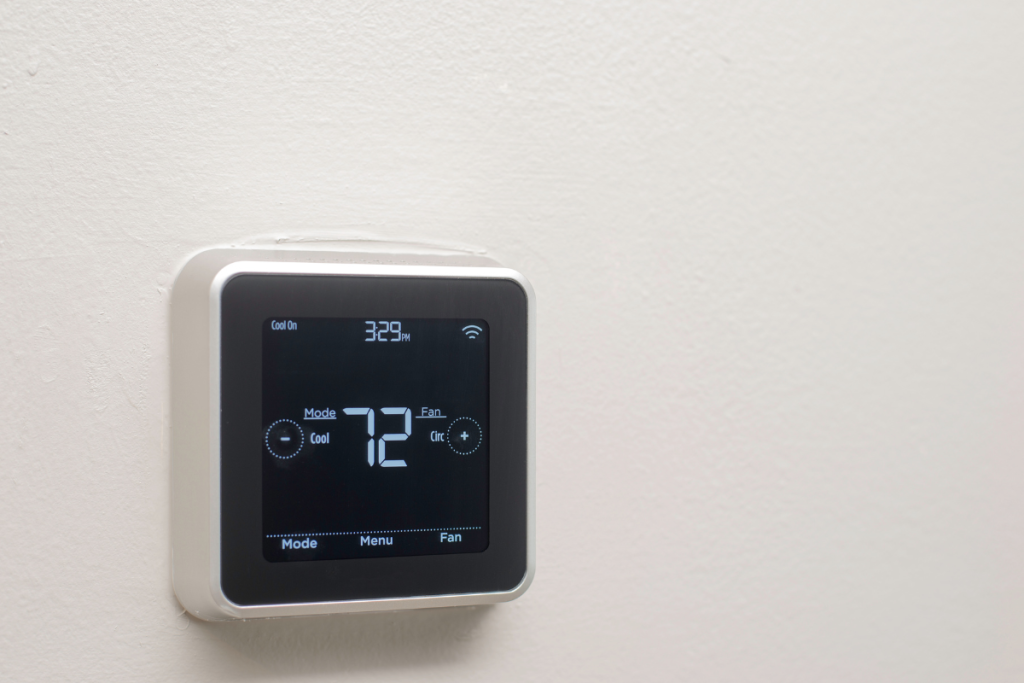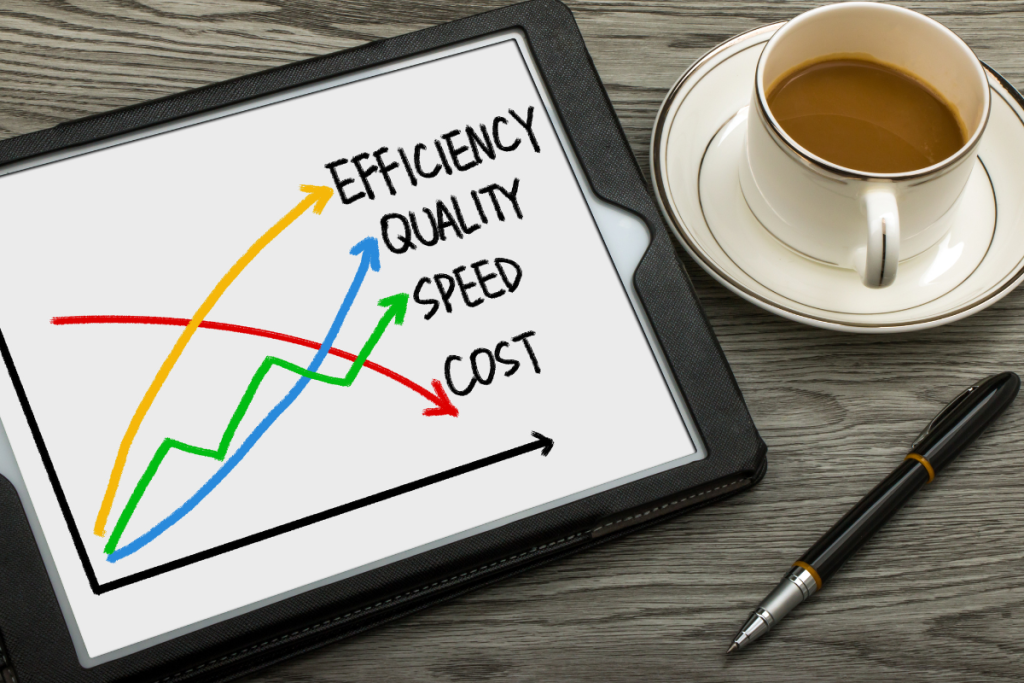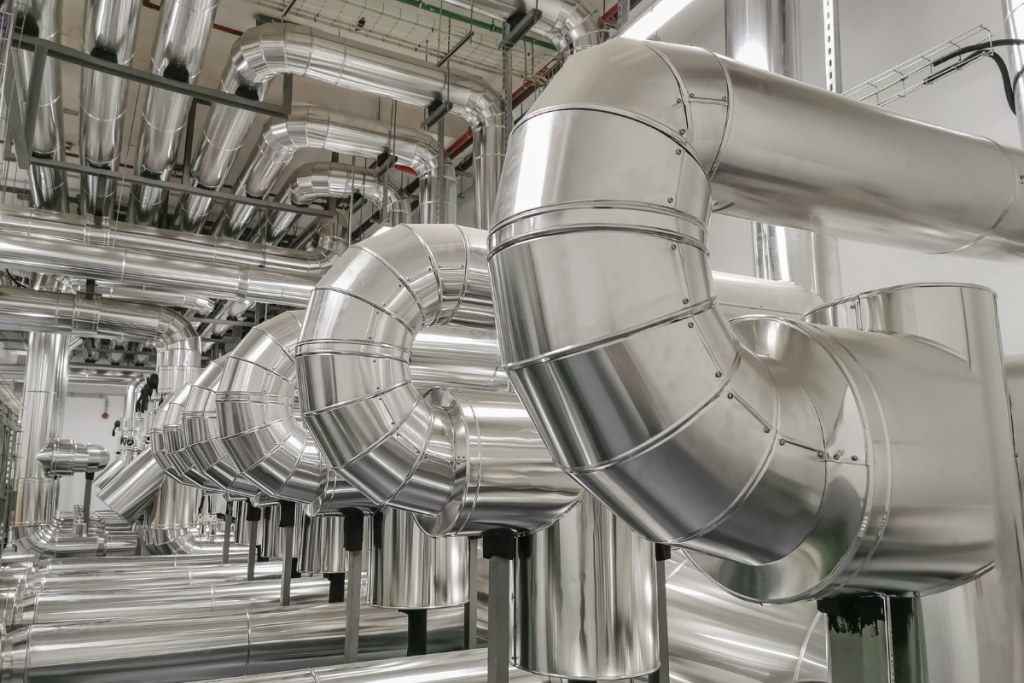Property managers are always interested in learning about innovative ways to cut commercial HVAC energy consumption, solve inconsistent comfort levels, and improve heating and cooling efficiencies that result in lower utility bills.
Zoning systems can help overcome these issues, as well as allowing your tenants to better control their heating and cooling systems by setting the correct temperature for individual spaces that have different climate needs.
What Is a Commercial HVAC Zoning System?
Commercial zoning systems allow you to control the airflow and temperature settings to different areas in your building, whether you need a consistent temperature for an entire floor, or individual settings for specific rooms, offices, and workspaces.
For example, you’ll likely want your board or meeting rooms, especially those used to entertain clients, kept at a different temperature than a room used primarily for storage or filing. You can also avoid heating or cooling offices or workspaces that will be unoccupied for an extended period.
Zoning systems can also help you control the temperature of rooms to match the environmental needs of specialized stock items or technical processes without affecting the climate requirements of adjacent spaces.
How Do HVAC Zoning Systems Work?
HVAC zoning systems are based on a combination of individual motorized dampers controlled by programmable thermostats. Each designated zone has its own thermostat and damper system to set the heating and cooling settings for that individual zone.
For example, rooms that contain heat-emitting office equipment such as printers or photocopiers can be set at a cooler temperature than adjacent offices. In this case, the printer room is considered a different zone than other rooms in the workspace, and would need its own thermostat and dampers to control the room’s temperature.
Typically, zoning systems are most effective in heating and cooling smaller spaces, but they can also be used to efficiently control temperatures in larger areas, even an entire floor. However, they’re generally not effective in wide-open spaces such as warehouses, especially if the area is regularly exposed to outside air through open bay doors.
Many companies will have zones that contain multiple rooms, such as offices, meeting rooms, and lunchrooms. In this situation, it’s best to place the thermostat in the room that’s most frequently used, so the temperature requirements are consistent with needs of the most people in the space.
Rooms with similar efficiency features, such as energy-saving windows or insulation levels should be kept in the same zone, as their heating and cooling needs will likely be different than rooms without energy-efficient features. Similarly, rooms with the same directional orientation, such as sun-facing spaces or offices located along windows that are shady all day, should be in the same zone to preserve their unique climate needs.
For most other areas of your commercial space, zoning systems are an investment worth making, offering immediate benefits to both your tenants’ comfort and your bottom line.
3 Benefits Of Installing HVAC Zoning Systems
Zoning systems offer three significant benefits to forward-thinking property managers who install them in their buildings’ HVAC systems:
- Customized climate control: You can set each zone to your needs, or to the preferences of the people in a particular space, resulting in productive employees, happier customers, and more comfortable clients and partners
- Easily adjustable temperature settings: If the heating and cooling requirements of any zone change, you can easily adjust the thermostat accordingly to distribute airflow more efficiently and exactly where it’s needed
- Energy savings: Since you’re focusing on heating and cooling only where it’s needed, you’ll be consistently cutting down on energy waste throughout the year, resulting in substantial savings on your energy bill
As with most components of your HVAC system, you can maximize the benefits of using zoning control systems by ensuring that only qualified HVAC technicians handle their installation and maintenance, as well as carrying out regular inspections.
Read More: Choosing An HVAC Service Provider – 7 Important Checkpoints
Only Hire Qualified HVAC Technicians
Interested in installing a zoning control system in your commercial property? When it comes to your HVAC system, be sure to hire only qualified, reputable technicians to avoid expensive problems down the road.
Since 1990, Springbank Mechanical Systems has specialized in installing, maintaining, and servicing commercial HVAC and for commercial and retail properties. We provide honest, reliable service using only professional-grade products and state-of-the-art equipment, giving you powerful HVAC performance and an unparalleled customer experience.
Contact me anytime if you have any questions about how zoning systems installation or service. I’m always happy to discuss how Springbank Mechanical Systems can help make your commercial HVAC system more efficient and bring you long-term energy savings.
Gregg Little and Paul De Thomasis are Co-owners of Springbank Mechanical Systems. He can be reached at 905-569-8990 or gregg@springbank.com.






